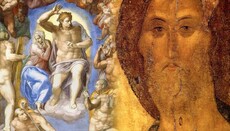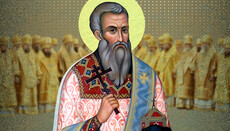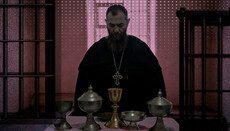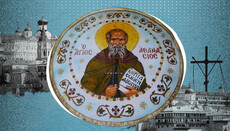Father Pavel Troitsky – a story of great holiness or great deception?
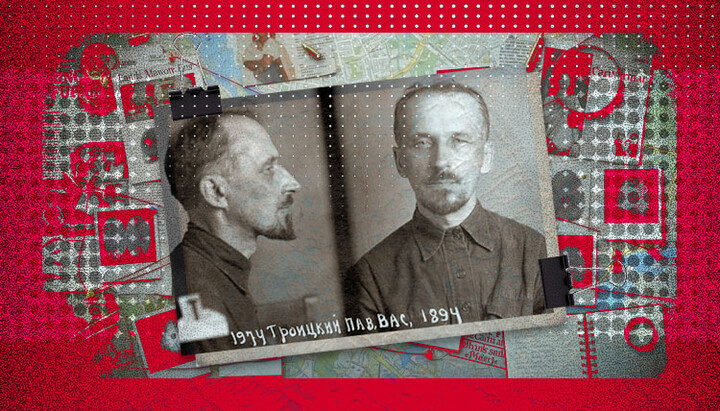
Respected bishops consider him a saint, but archives say he died in 1944. Sanctity or a KGB special operation?
November 6 is informally considered the day of the death of Elder Pavel Troitsky. The story associated with this name raises many questions. Many people, who can be called the modern spiritual elite, recorded memories of Father Pavel.
This includes Bishop Panteleimon of Orekhovo-Zuyevo, Archpriests Vladimir Vorobyev, Ioann Kaleda, Alexander Saltykov, and Dimitry Smirnov. They provide striking examples of the elder’s spiritual insight. Biographical details of Father Pavel’s life, as presented by Archpriest Vladimir Vorobyev, can be found on the PSTGU website.
Father Pavel had an enormous influence on these people.
Bishop Panteleimon even said that Father Pavel is one of the greatest saints not only in the history of the twentieth century but in the entire history of the Orthodox Church, and if there is Father Pavel, then there is God.
The elder whom no one saw
No one ever saw the elder himself. He sent letters through his cell attendant, Agrippina Nikolaevna, who was his long-time contact and friend. The elder died in 1991 in complete obscurity. He did not wish to disclose the place of burial. Almost immediately after the elder's death, his faithful companion Agrippina also passed away.
But with the elder's death, the miracles did not end.
In 1991, the relationship between the state authorities and the Church was reset, bringing new opportunities. The very clergy who today remember Father Pavel so warmly began to seek more detailed information about their spiritual father’s life journey and his final resting place.
Death certificate dated 1944
Archives began to open, revealing the feats of the new martyrs. Father Pavel’s personal file was also found. According to the documents, Hieromonk Pavel Troitsky died in a labor camp in 1944, as confirmed by an official record.
Admirers of the elder suggest that it was not he who died, but another person, and that Father Pavel managed, thanks to a forged death certificate, to escape from the camp and obtain a fake passport through his sister.
However, no evidence of this theory has been found.
The search for Father Pavel's residence led the elder's spiritual children to the village of Kuvshinovo in the Tver region. In the small settlement, where everyone knew each other, not a single person was found who had heard of or seen the old man who died a few years ago but had lived there for almost half a century. Nor was there a house where the elder might have lived.
Version: A brilliant KGB operation
Years passed, and publications began to appear on the Internet about how the KGB conducted a brilliant operation. Thanks to it, they were able not only to exert direct influence on Father Vsevolod Shpiller (their main target) but also to infiltrate the minds and souls of prominent church figures, especially among the youth.
The secret service invented and propagated a legend about a certain elder who lived in an unknown place but was said to be holy, clairvoyant, all-knowing, and capable of providing spiritual guidance through private secret correspondence.
In one of the publications, Deacon Andrey Kuraev states that the person who debunked the myth of Elder Pavel Troitsky was Abbot Damaskin (Orlovsky) — a man who professionally worked on the canonization of saints and spent much time researching the archives on the new martyrs. After that, he fell into disfavor.
Miracles vs. facts: two answers
One might not delve into this topic if not for one "but". Archpriest Dimitry Smirnov recounted, and Bishop Panteleimon and Archpriest Vladimir Vorobyev continue to recount, Father Pavel as a super-clairvoyant spiritual father. He sees the future, describes it, and it all comes true in every detail. The elder wrote about things that no one could possibly have known. Father Vladimir Vorobyev is convinced that Father Pavel could read his thoughts and see from afar everything he was doing.
If even a part of all these miracles is true, it cannot be explained by any KGB tricks. There is only one of the two possible answers to these perplexities:
- Either all these high-ranking spiritual leaders are deliberately deceiving people to avoid looking foolish now.
- Or the KGB operation story is a devilish slander against the spirit-bearing elder.
Why wasn't a handwriting analysis conducted?
With all my heart and soul, I am inclined to accept the latter option as the truth. But none of the storytellers have been able to provide any irrefutable evidence of the truth of all the above. Everything is conveyed only verbally, without presenting any documents or indisputable evidence.
The simplest and most obvious solution would have been to conduct a handwriting analysis of the elder's letters, which, according to the spiritual leaders, number about 400. Father Pavel's personal file was found, containing his handwriting, and, as can be understood, there are letters written by the elder's hand before 1944. An analysis could easily answer the question of whether the elder is indeed the author of these letters.
But this was not done.
Canonical deadlock
As for the official position of the Russian Orthodox Church regarding the personality of Hieromonk Pavel Troitsky, there was a setback here as well. According to the ascetic's personal file, he should be canonized among the new martyrs as a confessor who died in a labor camp.
But if this were done, all the high-ranking spiritual leaders would have to admit that they were deceived. That is probably why Father Pavel was not included among the new martyrs. And there are no factual grounds to canonize him according to the life version proposed by Father Pavel’s spiritual children
